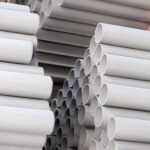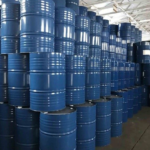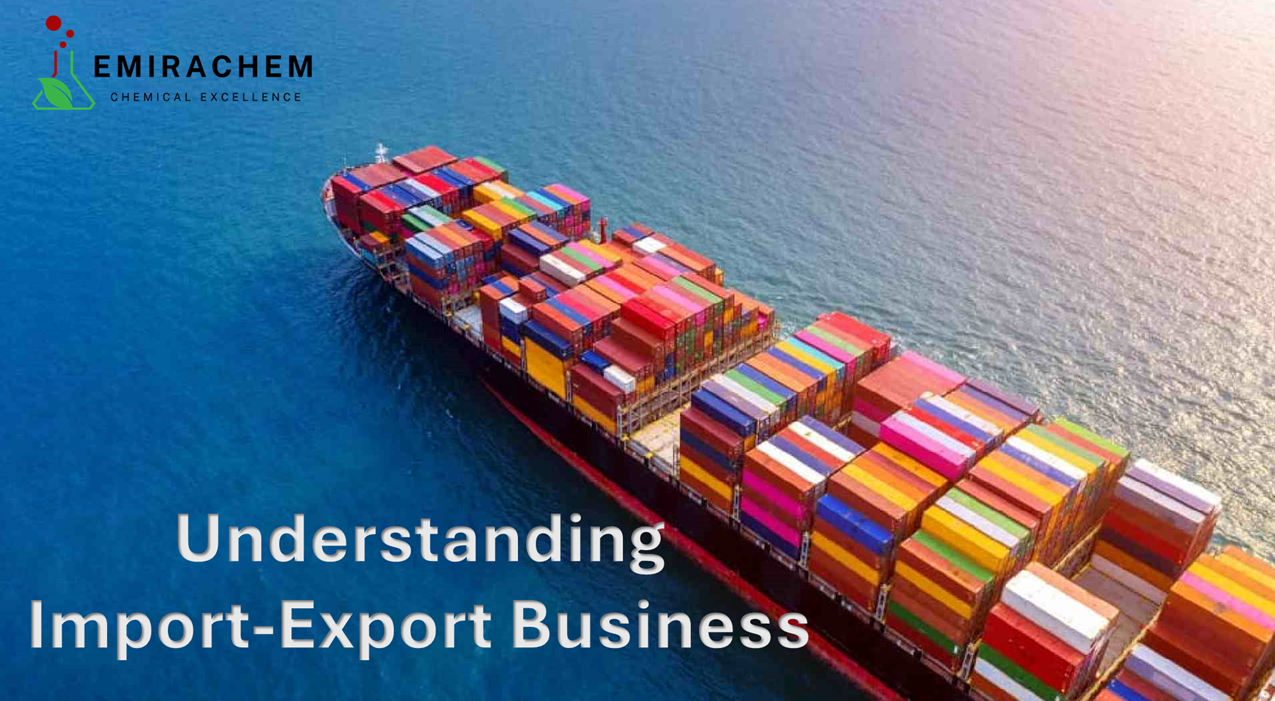In today’s interconnected global economy, international trade is not just an option—it’s a necessity for growth. Whether you’re a manufacturer, distributor, or trader, understanding the import-export business is key to tapping into new markets and expanding your reach. This blog aims to break down the core concepts, guide you through the processes, and explain how you can streamline your global trade operations—especially in the chemical sector, with trusted partners like Emirachem, your go-to supplier for Polyurethane and PVC Resins.
1. Understanding Business: Domestic vs. International
Domestic business operates within the boundaries of a single country—sharing a common language, currency, tax rules, and regulatory environment. It’s straightforward, but limited in market size and opportunity.
In contrast, international business involves cross-border transactions of goods, services, or capital. It offers larger markets, diverse consumer bases, and potential cost advantages. However, it brings complexity—different regulations, currencies, cultural differences, and logistics challenges.
For example, exporting PVC Resins from a plant in the UAE to a manufacturer in India involves compliance with both countries’ import-export laws, tariff structures, and shipping formalities. That’s where experienced partners like Emirachem ensure a smooth and reliable supply chain.
2. Basics of Import-Export Business
The import-export business is centered around the movement of goods between countries. Here’s what each entails:
- Exporting means selling your goods to a foreign country.
- Importing means purchasing goods from a foreign source.
Key players in the ecosystem include:
- Manufacturers (like Polyurethane and PVC producers)
- Exporters & Importers
- Freight Forwarders
- Customs Brokers
- Banks & Insurance Providers
Emirachem simplifies this chain by supplying high-quality raw materials and offering flexible shipping terms and payment options tailored to your business.
3. Steps of Exporting & Importing
Here’s a simplified breakdown of the import/export process:
Exporting Process:
- Market Research – Identify demand for your product in target countries.
- Product Adaptation – Ensure compliance with local regulations.
- Pricing & Quotation – Set international pricing (CIF/FOB terms).
- Find Buyers & Negotiate Terms
- Documentation & Contracts – Prepare Invoice, Packing List, Bill of Lading, Certificate of Origin, etc.
- Shipping & Logistics
- Customs Clearance
- Payment Receipt – Through LC, TT, or other agreed terms.
Importing Process:
- Product Sourcing – From a reliable exporter like Emirachem.
- Price Negotiation & Contracting
- Documentation Review
- Customs Duties & Taxes Estimation
- Shipping Arrangements
- Customs Clearance & Delivery
- Payment Completion
Choosing a partner like Emirachem ensures that the import-export lifecycle is handled with precision, especially for chemical goods requiring specialized documentation and care.
4. Export Business vs. Import Business
| Feature | Export Business | Import Business |
|---|---|---|
| Focus | Sell products overseas | Source products from abroad |
| Goal | Expand market share | Reduce production costs / gain access to unavailable materials |
| Risk | Payment delays, foreign laws | Product quality, compliance, delivery delays |
| Example | Exporting Polyols to Asia | Importing Silicone Surfactants from Europe |
In both models, Emirachem plays a crucial role—supplying globally accepted products and supporting clients with logistics, documentation, and shipping advice.
5. Why Go Global?
Here’s why companies expand into international markets:
- Larger Customer Base: Reach millions of new consumers.
- Higher Profit Margins: Premium prices in foreign markets.
- Diversified Risk: Reduce dependency on domestic demand.
- Competitive Advantage: Position your brand as a global leader.
- Better Resources Access: Import raw materials (like Polyurethane) not available domestically.
Emirachem empowers businesses with top-tier chemical raw materials, including:
- Polyurethane
- Polyether & Polyester Polyols
- PVC Resins
- Silicone Surfactants
- Amine Catalysts & Additives
With a wide global network and efficient logistics system, Emirachem ensures a hassle-free international trading experience.
Why Choose Emirachem for Your Global Trade in Chemicals?
- Reliable Product Quality – Certified and tested to meet global standards.
- Flexible Terms – We adapt to your shipping and payment preferences.
- Responsive Support – Our sales and logistics team ensures you’re always informed.
- Global Reach – Seamless exports to Asia, Africa, Middle East, and Europe.
Conclusion
Understanding the import-export business is essential for companies looking to scale and compete globally. From the basics of trade mechanics to choosing the right logistics and product partners, each step matters.
If you’re in the chemical industry and looking to import or export Polyurethane, Polyols, or PVC Resins, don’t take chances. Contact Emirachem today for a smooth, reliable, and cost-effective global supply chain solution.









